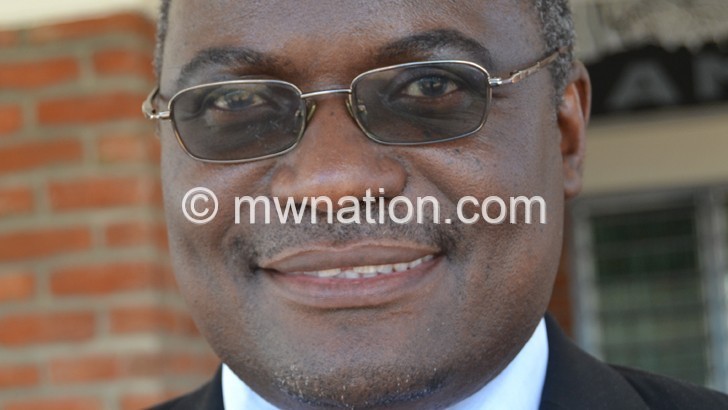Medics exodus
Thirty-eight medical specialists left the country for greener pastures in the last four years representing 25 percent of Malawian specialist currently in the country.
Medical Council of Malawi (MCM) registrar Richard Ndovie who said there are 153 Malawian medical specialists disclosed in an interview that an increasing number of them are leaving the country for greener pastures with radiologists and those in nuclear medicine topping the list.

Said Ndovie: “The country usually receives specialist doctors as lecturers at [Kamuzu University of Health Sciences] KUHeS who also provide services at central hospitals, volunteer specialist doctors in mission hospitals and those who come during medical camps. Others come through research institutions such as the UNC project and John Hopkins.”
He said despite the Covid-19 pandemic worldwide, a lot more specialist doctors are applying to practice outside the country, mostly South Africa and Namibia.
Ndovie disclosed that most of those are applying are radiologists and specialists in internal medicine top the list because the country does not have established cancer hospitals where they can apply their skills.
“But all in all, we have surgeons, opthalmologists, paediatricians among those leaving the country.”
A specialist doctor has training in a specific area of medicine and is able to treat complicated health problems.
MCM provides certificates of good standing to doctors who want to work outside the country.
Records at MCM show that between 2017 and 2020 a total of 38 local specialist doctors left the country with 20 of them leaving in 2019. Five left in 2017, six in 2018 and seven in 2020. The 38 who left the country represent 86 percent of the total number of medical that the University of Malawi’s College of Medicine trained in the past five years.
Since 2016 the College of Medicine has trained 44 medical specialists in orthopaedics, internal medicine, paedriatrics and child health, obstetrics and gynaecology, opthalmology, psychiatry, orthopaedics, surgery, family medicine, anaethesia and intensive care, according to Kamuzu University of Health and Sciences registrar Sphiwe Lino.
She said the fees to train a specialist is $3300 per annum for four years which translates to K108.4 million.
Principal Secretary in the Ministry of Health Charles Mwansambo confirmed the challenges due to shortage of specialists.
“Generally, there is a big shortage of health practitioners in our facilities, but everything is being done to reverse the situation and there are definitely more specialists now than five years ago.”
He said KUHes as well as colleges affiliated to the East and Southern Africa (ESA) bloc are training more specialists.
MCM records show that there has been no anaesthetist at Kamuzu Central Hospital (KCH) since 2013, and that anaesthesia is provided by anaesthetic clinical officers or clinical associates who are holders of diplomas and degrees in anaesthesia.
KCH also has two medical specialists, one of whom is the hospital director, leaving only one as a full-time practitioner.
The country has only three oncologists, one based at Queen Elizabeth Central Hospital (QECH) and two at KCH. Malawi also has three neurosurgeons, two based at QECH and one at KCH. There is only one child cardiologist in the country and none to take care of pathologies of the heart in adults.
As of 2015, Malawi’s doctor-to-population ratio was 1: 53 000, according to the World Health Organisation.
A health sector vacancy analysis from the country’s Health Sector Strategic Plan II (2017—2022), states that there are 12 established positions for obstetrician/gynaecologists, but only one is filled representing a 92 percent vacancy rate; all the 12 posts for Surgeon are vacant, all eight posts for Dental surgeon are vacant, and there is a 92 percent vacancy rate for Paediatricians.
To deal with the shortage of specialists Ndovie proposed increase in intake of students in the medical school as well as in financing of post-graduate medical training.
He also observed that there is need to increase incentives for the health professionals such as promotions, salaries, housing schemes and also ensure that central and district hospitals are well equipped to operate above minimum requirements.
Malawi Equity Health Network (Mehn) executive director George Jobe while agreeing with Ndovie on incentives also said government should heavily subsidise fees for specialty training to increase the number of specialists.
In a study titled Specialty training for the retention of Malawian doctors: A cost-effectiveness analysis, by Kate Mandeville, Adamson S. Muula and others, the authors estimated that after 40 years of expanded specialty training in Malawi, the medical workforce would be over 50 percent larger with over six times the number of specialists compared to current trends.
“However, the government would need to be willing to pay at least 3.5 times more per doctor-year for a 5% increase and a third more per specialist-year for a four-fold increase. Greater returns are possible from doctors with more flexible training preferences. Sustained funding of specialty training may improve retention in sub-Saharan Africa.”






One Comment